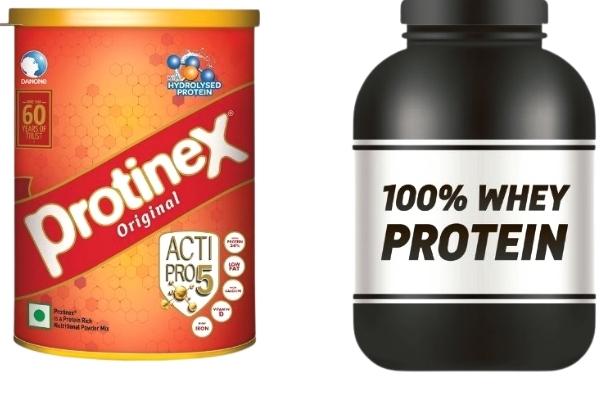We often hear people in India forcing their friends, who don’t drink scotch, beer, vodka or any other alcoholic beverage, to have red wine. The reason they give is, because it’s good for health. In fact, we all have also heard the same statement quite often. Let’s get the true story behind this fact.

Wine is actually an alcoholic drink, made from fermented grapes, and is considered a relatively healthier option as compared to other alcoholic beverages, because of the presence of certain healthy compounds in it. Generally, the colour of the wines we have is red or white, but there can be various shades of the two colours. Red grape varieties and red wines contain roughly 3- to 10-fold more resveratrol than their white counterparts
Wine has always been linked in some way to the history of man, either because it is a beverage with its own flavour and personality or because of the benefits it brings to health. Important ancient civilizations, like the Egyptians, the Greeks and the Romans, besides the Hindus, used wine as medicine for the body and for the soul. Historical records show that the medicinal use of wine by man has been a practice made for over 2000 years.
Although there have been reports of wine consumption for more than 7,000 years, the benefits of wine were only highlighted in 1992, when the French Paradox was published. What arouses scientific attention is related to the eating habits adopted by the French, who, despite having high levels of sedentary lifestyle, smoking, high consumption of saturated fats and higher cholesterol levels, when compared with other industrialized countries, have a lower incidence of diseases coronary diseases, a fact attributed to the high consumption of wine.
Wine is a complex beverage, containing a wide range of polyphenols. Polyphenols are considered to effect health by preventing atherosclerosis and coronary heart disease (CHD) and are seen as potential cancer chemo-preventive agents. The content and profile of polyphenols depend on variety, geographical origin, growing methods, and wine making processes. Among the broad compound class of polyphenols, resveratrol and its derivatives play a major role, which are found in plenty in grape wines.
Resveratrol is a plant toxin, which is produced in the grape skin, to protect itself from infection from a plant pathogen named Bothrytis Cinerea. Resveratrol is also found in other fruits and berries like raspberry, acai berry, plums, tomatoes, peanuts and peanut products like peanut butter, and supplements like Grape Seed Extract etc.
A study, found that resveratrol has a high absorption rate but low bioavailability in the human body, specially from oral ingestion. Most of the oral resveratrol taken during the study, was found to pass out of the body through urine and very less amount was found in the body for use.
A study, found a major flaw in the red wine and resveratrol recommendations worldwide. It was seen that, resveratrol consumption in a daily range of 700–1000mg/kg body weight is well tolerated without toxicologic effects and that concentrations ≤2g/d are harmless when applied in the short term. Based on these and other findings, various “experts” claim that a daily dosage of 1g/d is effective for treatment of diverse disorders in humans. In addition, the permanent launch of articles with a lack of scientific background has led to the notion that the consumption of supplements enriched with resveratrol is health-promoting or suitable to alleviate diverse medical conditions.

However, the researchers in the study asks, how much of these nutrients must be consumed to reach the RDA of 1g resveratrol. Typical resveratrol concentrations reported for conventional food products are: peanuts without seed coats, 0.03–0.14μg/g; red wines, 0.361–1.972mg/L (acc. to some sources it is 2-7mg/L); white wines, 0–1.089mg/L; rose wines, 0.29mg/L; beers, 1.34–77.0μg/L; dark chocolate, 350μg/kg; red grapes, 92–1604μg/kg fresh weight; white grapes, 59–1759μg/kg fresh weight etc.
Now, in order to get 500-1000mg of resveratrol, one will have to consume app. 250-500ltrs of red wine (app. 2mg/L of resveratrol). Even if we take a higher amount of 7mg/L of resveratrol, still you would need 70-140ltr of red wine. If you try your hand on this amount of wine, you would probably die of alcohol poisoning, before you could even think of any health benefits.
On the other hand, a latest study suggested that, alcohol consumption of all amounts was associated with increased cardiovascular risk. And, the reported cardioprotective effects of light to moderate alcohol consumption may be the product of confounding lifestyle factors.
A meta-analysis study, suggested that, “The level of alcohol consumption that minimized harm across health outcomes was zero standard drinks per week.”
Now, having a glass of Red wine (recommended limit of app. 140ml/day), or for that matter any alcoholic beverage is not the issue. There is no need to convince yourself or anybody, why you like to booze. The aim is to stay within moderation when drinking, and not to worry about health benefits the drink can incur.
Also, you don’t have to start having wine or any alcoholic beverage, for sake of health benefits, or on anyone’s recommendations. As we saw above that no amount of alcohol is better than even small amount of alcohol.
Also, it has been observed that moderate wine drinkers often have an overall healthier lifestyle and habits.



